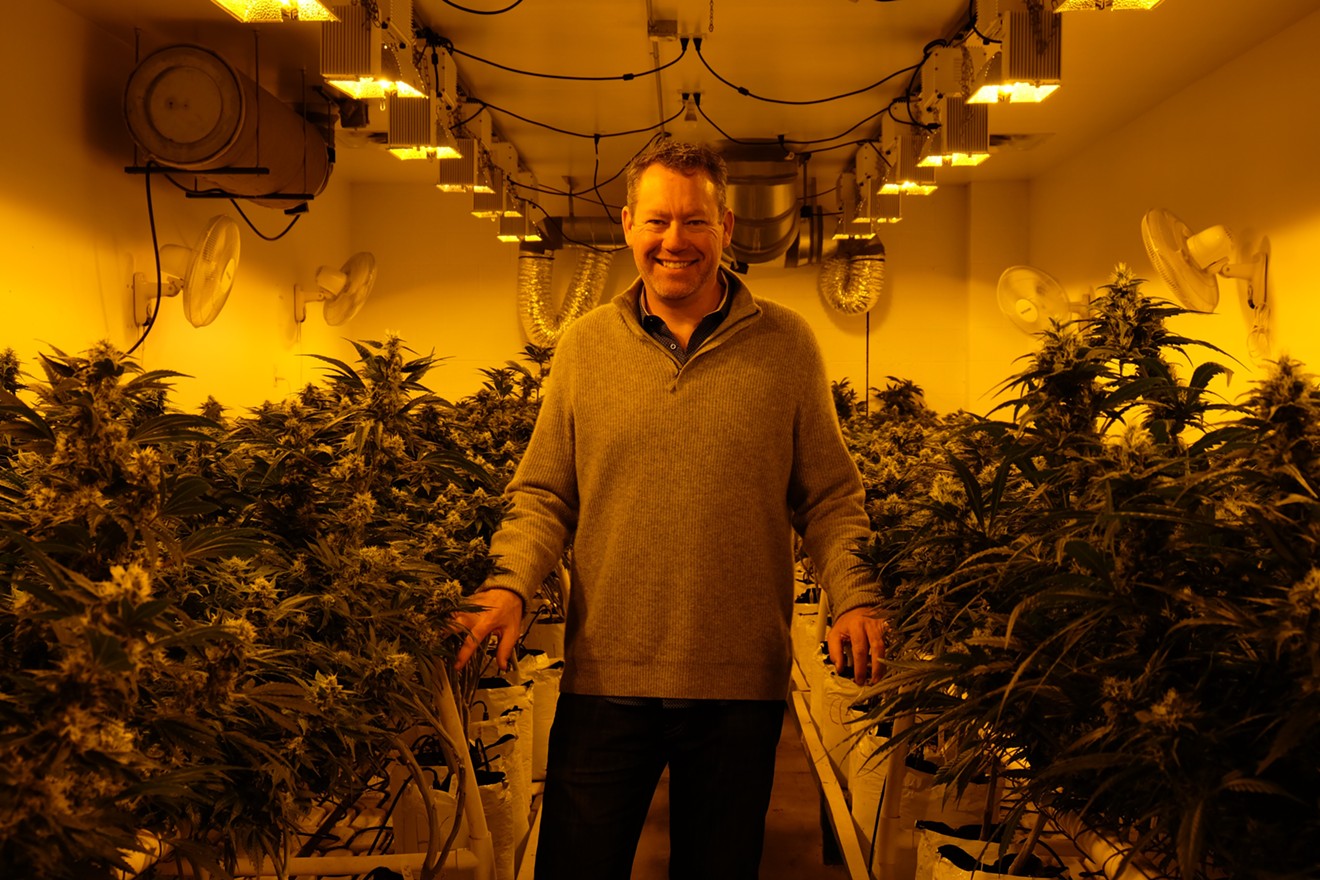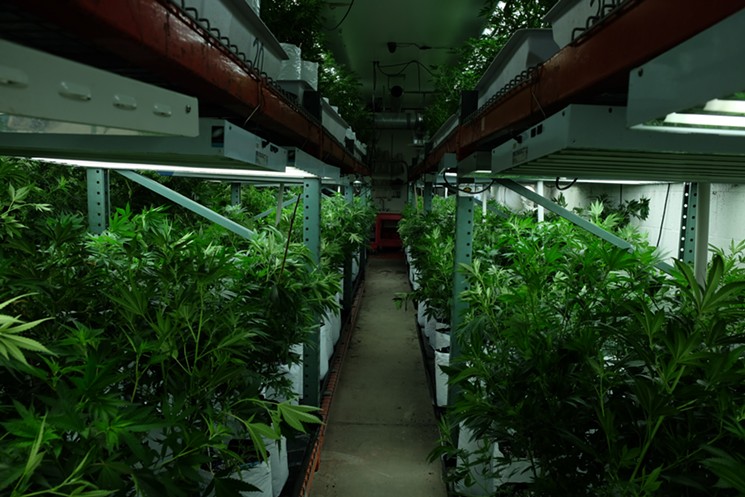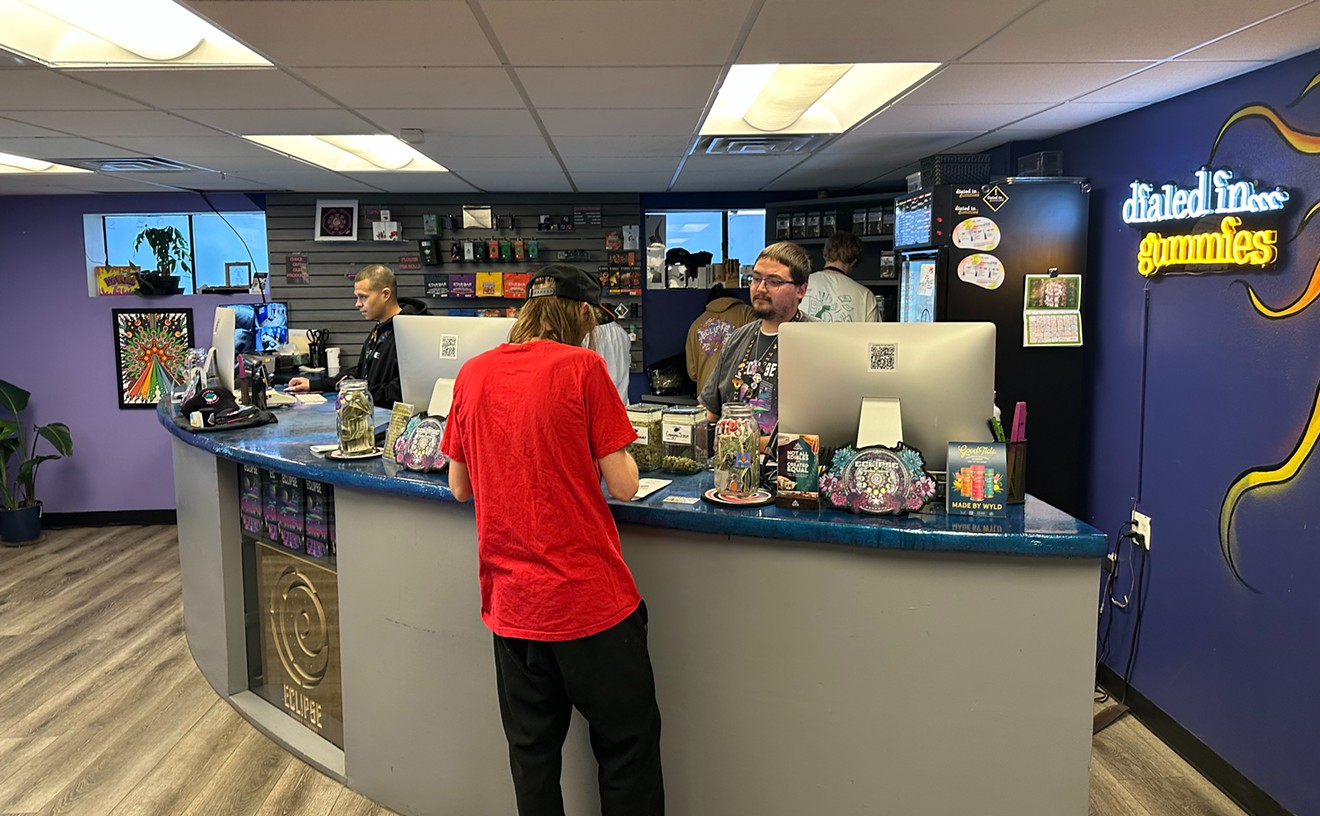Since it founded a medicinal grow in 2009, Colorado Harvest Company has had a commitment to clean cannabis, adding a recreational operation in 2014 and always improving on a well-oiled system. That system has earned Colorado Harvest Company a growing reputation for quality.
As more and more states have legalized marijuana, Colorado Harvest has been hosting many out-of-state visitors who want to observe grow operations. "The world is watching Colorado, and that's why it's so important that we do a good job here," says Colorado Harvest CEO Tim Cullen. "We have people visiting at least every other week or so."
Cullen has a background in biology and tells his visitors that it's crucial for new grows to set up a chain of command. "It was a learning curve," he remembers. "When you're thinking about hiring people, you automatically think you want to get the most qualified people in here, and we tried that for a long time, but we were constantly frustrated."
He found that it was better to hire people who love the plant. "It helps if they have a background in biology or agriculture, but we're here to teach, and if someone loves the plant, they're more likely to take care of it," he says.
Having the right people and the right structure also helps create a solid workflow. "There was always this infighting," Cullen explains. "As soon as we said we're going to have one queen bee and lots of worker bees, then everything got much easier. Then when someone comes in, they're trained in our method. What I can't have are a whole bunch of people who all think they know the right answer."
Early on, some of his grow employees took it upon themselves to make their own nutrient mixes for the plants. That was a major problem, because Colorado Harvest, like other grows in the cannabis field, has spent time, effort and money perfecting its grow recipe.
"The recipe is our company secret. It's been around for a long time, and it's not something we want to mess with," Cullen says. "You can't mess with our secret sauce.... The line cooks don't get to make up the food."
Coming up with the right recipe isn't easy. Cullen says that many people who want to grow cannabis don't understand state regulations governing grows — or even what is meant by "pesticides." The list of treatments allowed have been negotiated by growers and the Colorado Department of Agriculture, he notes. "If you gave that list to an Iowa corn farmer, they would laugh at you, because these are not pesticides that are recognized by agricultural producers," Cullen says. "When I say pesticides, I mean we're using things like concentrated cayenne pepper and mint and thyme."
According to Cullen, the process for cannabis is stricter than it is for organic foods. Not only does a grow have to observe regulations for the grow itself, but its has to provide consumers with a list of every single substance that was used on the plant.
"It's even more organic than organic production methods," he explains. "We're going beyond what's considered for food, and in addition to that, we have to label everything we spray or water into these plants as an ingredient list. Your lettuce at Whole Foods does not have an ingredient list on it."
Despite the fact that growers and the agriculture department worked together on the pesticide list, Cullen says it would be helpful if there were even more communication between the department and the cannabis community. "If I have an outbreak, I should be able to call the Colorado Department of Agriculture and tell them I have this issue and ask what they've seen to address it," he says.
The worst case? Once a bug enters the grow, the entire room is considered infected. That's why Colorado Harvest splits each growth stage in different rooms at the facility.
"That way, if one plant somehow gets infected, it won't kill the whole lot. Once you get an outbreak of something, you're never going to get eradication. Your goal to get to zero doesn't exist; you're never going to get rid of a bug that has gotten in, so you need to prevent them at all costs," Cullen says. "Pest prevention is our biggest goal."
[
{
"name": "Air - MediumRectangle - Inline Content - Mobile Display Size",
"component": "12017618",
"insertPoint": "2",
"requiredCountToDisplay": "2"
},{
"name": "Editor Picks",
"component": "17242653",
"insertPoint": "4",
"requiredCountToDisplay": "1"
},{
"name": "Inline Links",
"component": "18838239",
"insertPoint": "8th",
"startingPoint": 8,
"requiredCountToDisplay": "7",
"maxInsertions": 25
},{
"name": "Air - MediumRectangle - Combo - Inline Content",
"component": "17261320",
"insertPoint": "8th",
"startingPoint": 8,
"requiredCountToDisplay": "7",
"maxInsertions": 25
},{
"name": "Inline Links",
"component": "18838239",
"insertPoint": "8th",
"startingPoint": 12,
"requiredCountToDisplay": "11",
"maxInsertions": 25
},{
"name": "Air - Leaderboard Tower - Combo - Inline Content",
"component": "17261321",
"insertPoint": "8th",
"startingPoint": 12,
"requiredCountToDisplay": "11",
"maxInsertions": 25
}
]














